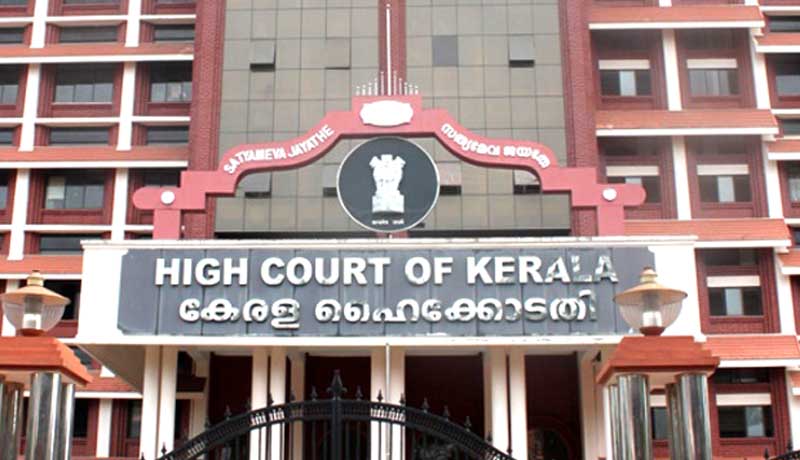
Why Kerala HC slammed ED, and stayed probe against Thomas Issac, KIIFB
The court agreed with the petitioners that the CAG report — based on which the ED built its case — cannot be the basis of an inquiry as its objections were rejected by the Kerala Assembly

The Kerala High Court, expressing doubts over the very premise of investigation against former finance minister Thomas Issac and KIIFB, has dealt a staggering blow to the Enforcement Directorate (ED). It has imposed a stay for two months on the investigation process while making very critical observations that would further strengthen the widely held perception that ED has become a political tool at the hands of the Union government.
According to the affidavit submitted by the ED, the investigation is based on two factors. One, the complaints received by ED regarding FEMA violations by KIIFB (the ED has not disclosed the identity of the complainants). Second, the 2019 report of the CAG makes observations on the ‘non-adherence to the constitutional provisions with respect to Masala bonds and KIIFB borrowings’. However, this part of the CAG report was not approved by the Legislative Assembly and thus carries no legal validity, according to the government.
Also read: Kerala Masala Bonds case: Why ED needs to do solid homework before quizzing Thomas Isaac
‘Violation of privacy’
KIIFB and Thomas Issac filed writ petitions against the ED for repeatedly sending summons and demanding the disclosure of personal matters that amounting to violation of privacy. Issac has also argued that despite conducting inquiries over a period of one-and-a-half years, ED did not make any breakthrough in the case and could not bring up a charge of the violation of any of the existing laws.
In the stay order issued on October 10, the High Court said it tends to agree with the arguments raised by petitioners KIIFB and Issac. It held that the CAG report cannot be the basis of an inquiry in the case since the objection raised by CAG was rejected by the state assembly. The court observed that ‘there is prima facie merit in the contention’ raised by the petitioners.
CAG report and its sanctity
The sanctity of the CAG report was debated in the past and the Supreme Court has taken a position on the same. In Arunkumar Agarwal V Union of India, the Supreme Court categorically stated that Parliament (and state governments) can decide whether to accept or reject the report. “The ministry can always point out if there is any mistake in the CAG’s report or the CAG has inappropriately appreciated various issues. For instance, we cannot as such accept the CAG report in the instance case”.
The single bench of the High Court quoted the above observation made by the Supreme Court to express doubts over the veracity of the premise of the inquiry based on an unapproved CAG report.
Another ground for inquiry was the ‘complaints received’ by ED regarding FEMA violations. The court, however, found merit in the arguments raised by KIIFB and Issac. KIIFB issued masala bonds only with due clearance from the RBI. It is argued that “all Extra Commercial Borrowings (ECB) are reported to the RBI on a monthly basis. The RBI having not raised any objection or even suspicion regarding the issuance of Masala Bonds and utilisation of the funds raised, the Enforcement Directorate is not empowered to any inquiry”.
The High Court found the argument relevant and made RBI as a party respondent in the case. “The submission of the petitioners that monthly reports in Form ECB 2 is being submitted to the Reserve Bank and no objection or suspicion has been raised by the RBI, assumes relevance. In view of the said contention, I find the Reserve Bank of India also to be a necessary party for deciding the issues involved,” states the order.
Displeased with ED
The High Court also expressed displeasure over ED’s non-compliance of court’s direction to furnish details of the inquiries being conducted against similar entities that subscribed to Masala bonds. It was pointed out by Issac and KIIFB in their petitions that other government entities, like National Highways Authority of India, National Thermal Power Corporation Ltd and Indian Renewable Energy Development Agency Ltd have also issued Masala Bonds and no investigation/inquiry is being conducted with respect to the issuance of Bonds by those entities.
The High Court bench categorically said that the court was “perturbed by the manner in which the direction of the court has been sidelined and neglected”.
Also read: 2 Kerala women killed in suspected human sacrifice; 3 held
“In spite of the direction issued by this Court on 2.9.2022 requiring the competent officer of the Enforcement Directorate to state whether the issuance of Masala Bonds by other entities is being inquired into, absolutely nothing in that regard is stated in the counter affidavit filed by ED on 23rd September,” states the order.
Based on these observations, the court makes the conclusion that “there is no justification in the petitioners being repeatedly summoned by the officers of the Enforcement Directorate”. Hence, issuance of further summons shall be kept on hold for two months.


